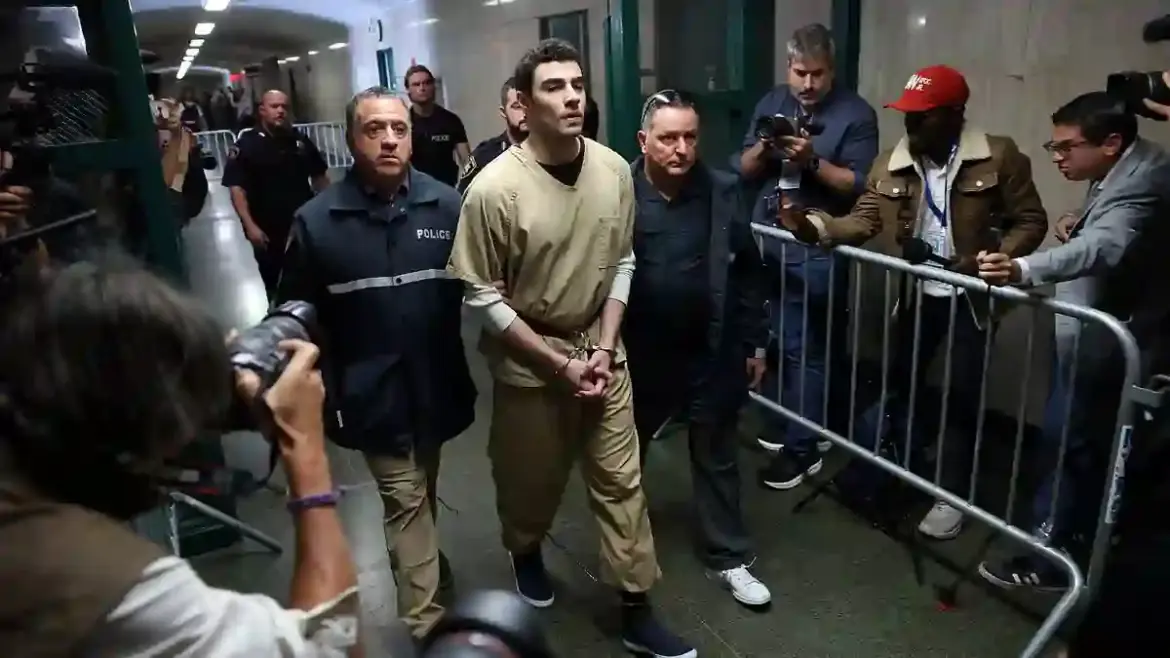What started as a tense day in a Manhattan courtroom quickly turned into a moment of relief for supporters of Luigi Mangione.
Fans gasped, smiled, and even shed tears after a judge tossed out the two most serious terrorism-related charges against him.
For many in the room, it felt like a huge turning point in a case that has captured national attention.
Judge Dismisses Key Terrorism-Linked Murder Charges
Judge Gregory Carro ruled that the evidence against Mangione was “legally insufficient” to support counts of first-degree murder in furtherance of terrorism and second-degree murder as a crime of terrorism.
That ruling eliminated the heaviest accusations, though Mangione still faces second-degree murder charges tied to the December killing of healthcare executive Brian Thompson.
He is also charged with several weapons offenses and possession of a forged instrument.
While the decision was a legal victory, it by no means ends his uphill court battle.
Mangione Appears Stoic in Court
Mangione, 27, walked into the Manhattan Criminal Court in tan prison clothing, shackled at the wrists and ankles.
His demeanor was described as calm and stoic as he faced the judge for the first time since December’s fatal shooting.
Outside the courthouse, dozens of supporters gathered, many wearing T-shirts and holding signs in his honor.
Some dressed up in green outfits referencing Luigi from the Mario Bros. games, while others wore masks similar to the one he allegedly used during the attack.
Supporters See Him as a Symbol of Protest
Despite the gravity of the allegations, Mangione has gained a loyal following.
Supporters describe him as someone who “took a bite out of corruption” when he allegedly shot Thompson outside a Midtown Manhattan Hilton hotel.
They argue his actions were a radical—though violent—protest against what they see as a broken healthcare system.
One supporter, Aeliana Boyer, said: “Healthcare is a human right. I don’t condone murder, but I understand the frustration.”
Another, home health aide Gladys Sharpp, added: “I feel connected to why he did it.
The healthcare industry is corrupt, and Luigi stood up to it—even if it wasn’t the best way.”
Comparisons to Charlie Kirk Killing
This case has been further magnified by another high-profile murder just days ago.
Charlie Kirk, founder of the conservative group Turning Point USA, was shot dead at a Utah campus event on September 10.
Authorities say his alleged killer engraved messages on bullet casings—eerily similar to Mangione, who allegedly etched words like “Deny” and “Depose” onto his ammunition.
Both killings are being examined as politically or ideologically motivated acts, adding fuel to the ongoing debate about violence in America’s culture wars.
Prosecutors Warn of Dangerous Influence
Prosecutors argue that Mangione’s actions were not only deliberate but designed to inspire others.
In a recent filing, federal attorneys warned: “The defendant hoped to normalize the use of violence to achieve ideological or political objectives.”
They claim Mangione saw Thompson’s killing as a “symbolic takedown” and even viewed himself as a hero.
Police found writings in his backpack suggesting he believed his attack was “targeted, precise, and doesn’t risk innocents.”
Facing Multiple Legal Battles Ahead
Even though today’s ruling was a win for the defense, Mangione still faces serious hurdles.
At the federal level, he has been indicted on charges of murder through the use of a firearm and terrorism-related crimes—charges that could make him eligible for the death penalty if convicted.
Attorney General Pam Bondi has already stated she intends to pursue execution.
On top of that, Mangione is due back in Pennsylvania in November to answer additional weapons charges stemming from his arrest at a McDonald’s in Altoona, where police captured him days after the killing.
A Divisive Symbol in a Divided Nation
To some, Mangione is a murderer who should face the harshest punishment.
To others, he is a radical symbol in the fight against corruption in the healthcare industry.
His growing base of supporters has already raised more than $1.2 million for his defense.
As the legal process moves forward, the country remains deeply split—over Mangione’s motives, the legitimacy of violence as protest, and what his case says about America’s broader struggles with healthcare, guns, and political extremism.
